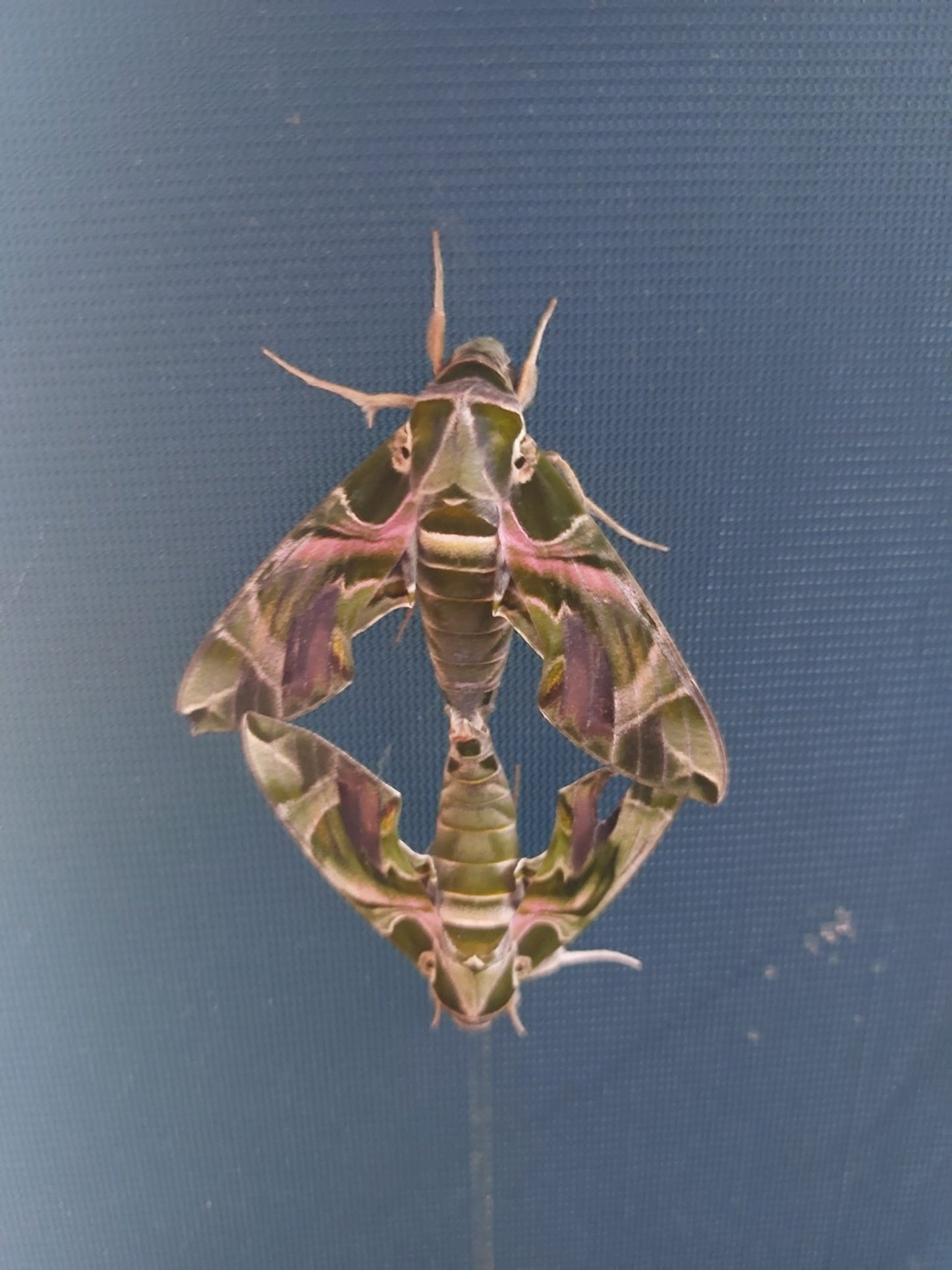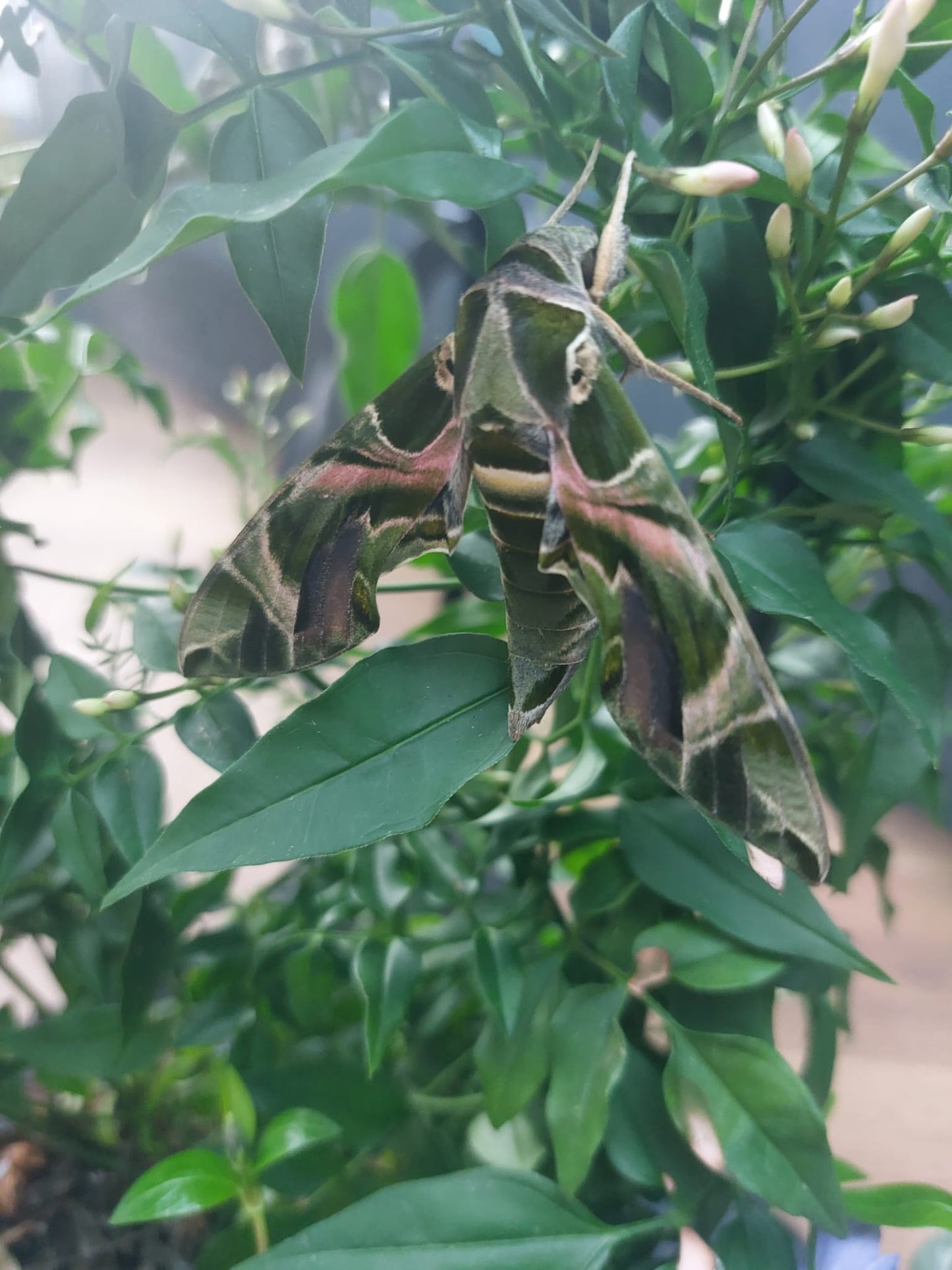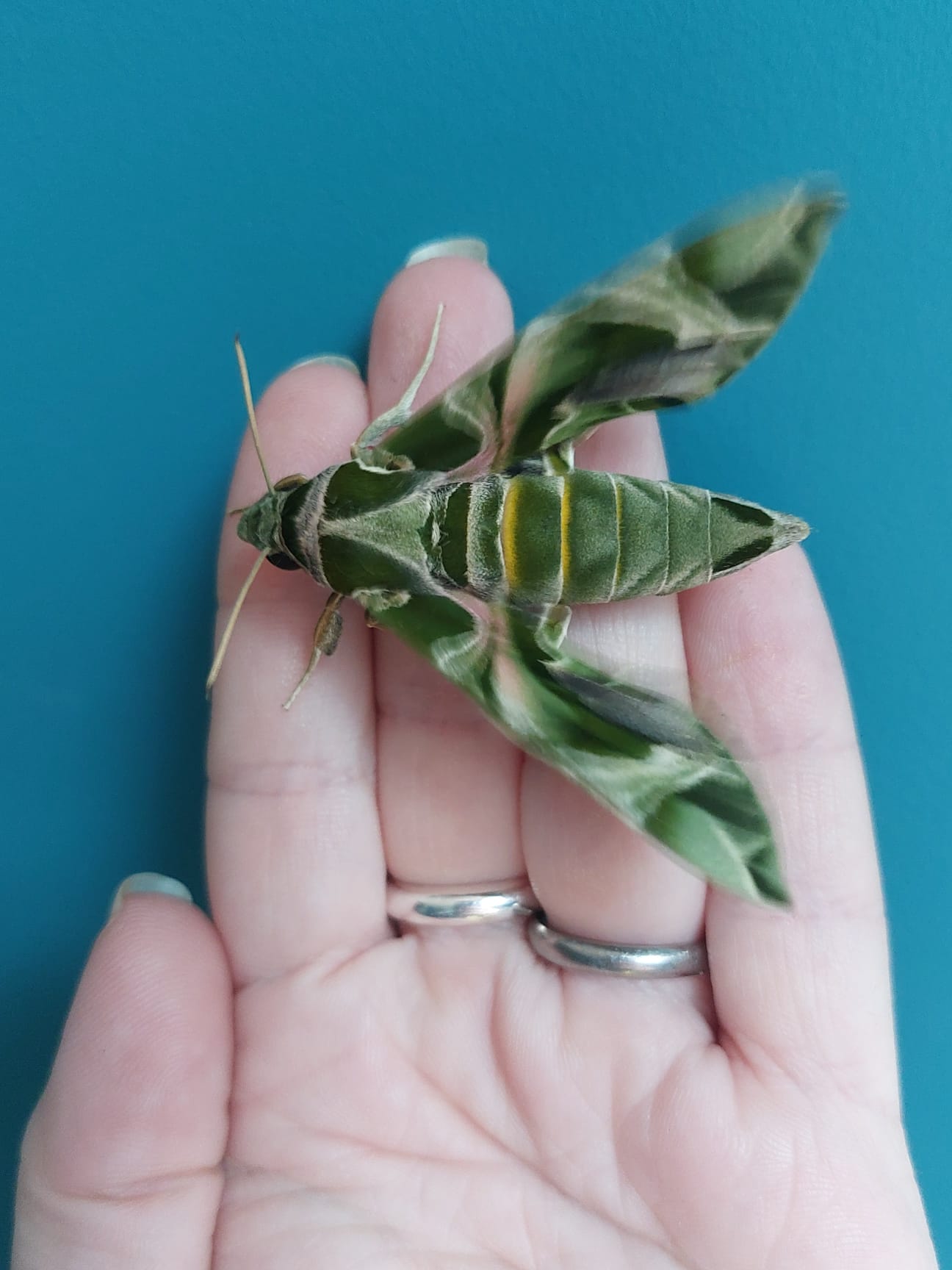Brambles Bug Basket
Larvae Level 1 (On Privet) - 15 X Oleander Hawkmoth (Daphnis Nerii)
Larvae Level 1 (On Privet) - 15 X Oleander Hawkmoth (Daphnis Nerii)
Couldn't load pickup availability
Larvae Level 1 (On Privet) - 15 X Oleander Hawkmoth (Daphnis Nerii):
Bramble’s Bug Basket
Brought to you by our expert in the field of lepidoptery, with over 40 years experience of breeding and the complete life-cycle care of moths.
Daphnis Nerii are a spectacular large Hawkmoth, originating from Africa and Asia, so prefer subtropical conditions. However they do migrate to some parts of Europe, but are unable to survive cold winters.
Adults achieve wingspans of up to 13cm, where males have 3 black spots on the tail of the abdomen and females, only 2.
Moths feed at twilight on nectar rich fragrant tubular flowers such as jasmine, Lonicera, Nicotiana and Vinca. In captivity without a natural nectar source adults must be hand fed daily to breed successfully with a 1:2 honey:water solution and enjoy a drink of sugar rich juice from freshly cut fruit.
Continually brooded in higher temperatures and capable of completing the lifecycle in 30 days. Females typically lay up to 350 eggs and normally hatch in 4-5 days.
Larvae can grow to 8.5cm and are generally successful on Jasminum, Privet, Vinca and Vitis.
Larvae appreciate being raised in warm temperatures and with good humidity and may be raised in plastic boxes until level 3. Ventilation should be increased as larvae develop through use of ventilation holes. Larvae should also not be overcrowded and strict hygiene must be observed at all times.
Mature larvae like to bury under dry leaf litter at soil level. Pupae should be stored in ventilated covered boxes and should be laid out on very lightly moistened vermiculite, then covered with dry moss with the head of the pupae left showing.
It is also possible to overwinter pupae in a cool room or outbuilding at 10-12 degrees, or in a fridge at these temperatures. This should be done in a sealed plastic box with vermiculite or on a lightly moistened cotton pad to avoid desiccation.
Our commitment to ethical practices ensures that our moths our ethically bred and handled with the utmost care. We prioritise the well-being of these creatures throughout the entire process.
Please ask if you have any further care questions, as we can’t be held responsible for issues that may arise from poor treatment.
Will be posted on food plant (Privet) in a ventilated container and we’ll protected box.
Apologies, but we’re only happy to post by Tracked 24 to reduce stress to the larave as much as possible during transit.
Thanks for looking and message if you have any questions!
Share






